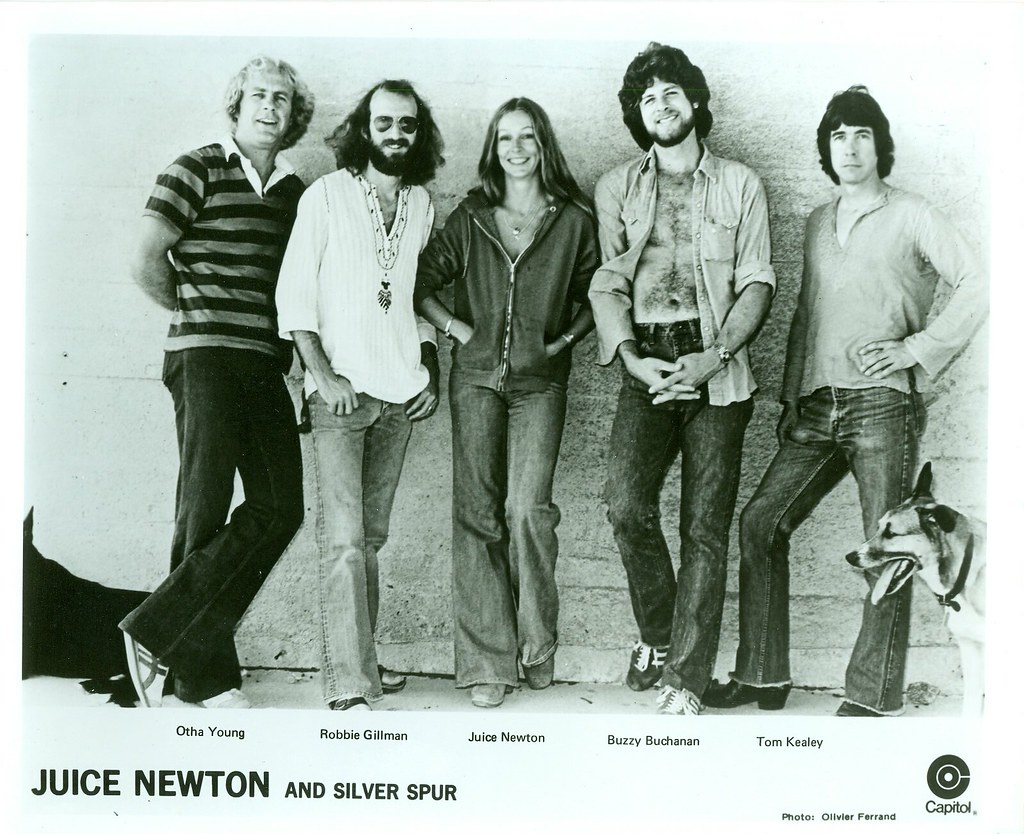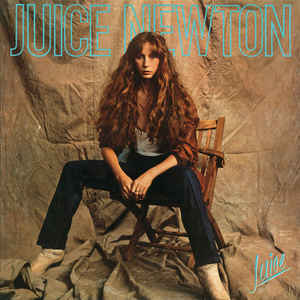
It seems strange to be asking whatever happened to an artist that has received no less than five Grammy nominations for best Pop/Country Female Vocalist (winning once, in 1983), an American Country Music Award for Top New Female Artist, two Billboard Female Artist of the Year awards and a host of other awards throughout a long and successful career, not to mention the Gold and Platinum albums and something like fourteen top ten hit singles. And she’s still going strong; she hasn’t recorded since 2010’s “Duets: Friends & Memories” but she still performs live from time to time and she has a second career as a successful horse trader. Most recently her version of ‘Angel of the Morning’, the most prominent recording of her career, was used in the soundtrack for the Carey Mulligan movie “Promising Young Woman”. Despite all this she remains largely unknown outside of her native U.S.A, her only real international impact being made in Canada and, to a lesser extent, Australia.
It’s hard to know why, since Newton has been peddling a form of country-pop/rock, not dissimilar to the early output of Linda Ronstadt and Emmylou Harris, for much of her career. She has a good voice and the looks that seemed to ensure her pop pin-up status yet she has never really clicked with overseas audiences. It’s even more baffling when you consider that many of the songs she’s known for have been hits for other artists in the UK and other countries.
Born Judy Kay Newton in Lakehurst, New Jersey in the early 1950s, Juice was a play on her first name used by teenage friends, but it has stuck with her throughout her career and she legally changed her name to Juice Newton while still in her twenties. She was interested in music from an early age, getting a guitar for her thirteenth birthday and, by the time she went to college in Los Altos Hills, California, she was performing on the folk clubs and coffee houses circuit. It was at this time that she met her musical soul mate, Otha Young, a singer and guitarist from Tulare County and they would continue to perform and record together until 2009, when Young died as the result of developing Lung Cancer.

Newton and Young formed country/folk rock band, Juice Newton and Silver Spur, which signed to RCA and released two albums in the mid-1970s before moving to Capital Records fr their third and final album. Juice and Otha Young stayed on at Capital, recording as a unit but under the Juice Newton name. She recorded her first hit single in 1977, the Ronnie Scott/Steve Wolfe song ‘It’s a Heartache’, a slow burn track that initially only charted in Mexico but would become a big U.S hit a year later. Bonnie Tyler recorded her version that same year and, of course, had a hit with it in the UK. The Newton/Young song, ‘Sweet, Sweet Smile’ would also be a big hit in 1978, but not for Newton. The Carpenters took a version to the top of both the Country and Adult Contemporary charts and people were starting to take notice of Newton – at least, in America! Her debut solo album, “Well Kept Secret” (interesting title, considering!) was released at the end of 1978 and, although it didn’t chart or produce any successful singles Capital kept faith with her and the following year she had success with a stand-alone single, ‘Let’s Keep it That Way’, which gave her a top 40 country hit. The next album, “Take Heart”, delivered a number of minor hits but still wasn’t attracting major attention or sales; the third solo album was the charm. “Juice” was released in 1981 and this was the big breakthrough album for Newton. Starting with the outstanding Chip Taylor song, ‘Angel of the Morning’ (a worldwide hit for Merilee Rush as far back as 1968 and a UK hit for P.P. Arnold in the same year). The song has been recorded by a number of artists over the years but it was Newton’s version that really grabbed the attention, probably helped by being the first country(ish) music video aired on MTV on its launch day and only the third video on the channel by a female artist (following Pat Benatar and Carly Simon). The album would give her additional singles success with ‘The Sweetest Thing (I’ve Ever Known)’ and ‘Queen of Hearts’ (written by Hank DeVito and originally recorded by Dave Edmunds, though his version would see nowhere near the same success as Newton’s). ‘The Sweetest Thing’ was particularly successful. Written by her musical partner, Otha Young, it would give her a top ten hit in three major US charts – the Hot 100, Adult Contemporary and Hot Country. Newton had finally arrived and the awards nominations started flooding in.
 Although “Juice” and its related singles attracted a lot of award nominations it was her fourth album, 1982’s “Quiet Lies” that would deliver her first Grammy award. ‘Break it to me Gently’, written by Joe Seneca and Diane Lambert, had been a big hit for Brenda Lee in the early 60s. Newton gave it a contemporary make over and picked up the Grammy for Best Female Country Vocal Performance, in the process beating out Emmylou Harris, Dolly Parton and Rosanne Cash. This period, throughout the mid 80s, was really the peak of Newton’s success and she racked up gold and platinum records across the board and registered hits in a number of countries – though never in the UK (her version of ‘Angel of the Morning’ was her only UK chart entry – it reached number 43 and was only on the charts for 6 weeks). She parted company with Capital Records in 1984, returning to RCA for her sixth solo studio album, “Can’t Wait All Night”, which continued her shift into slightly more rock-oriented music, so it was met with some surprise when, in 1985 she shifted completely the other way and aimed “Old Flame” squarely at the country market. She’d been making country pop/rock music for most of her career to this point and, since the breakthrough with “Juice” had been heading more towards the rock side of the music in the belief that was where her audience lay, but it wasn’t working and record sales were slipping. The decision to move in the other direction, towards her country music audience, was a clever move which paid off in a major way. The album would give her six Top Ten Country hits, with three of them making the number one spot – but unlike her previous releases, none of them crossed over to the other charts. She continued to hit the country charts throughout the remainder of the ’80s but, in 1989, she was a victim of the country clean-out at RCA, which also saw them drop Dolly Parton and Kenny Rogers, and she found herself without a recording contract for the first time in fourteen years. She wouldn’t release an album again until 1998, though she continued to tour occasionally. Newton has always been an engaging live act but much of her success was bound up in her recording. Contractual issues and failed recording projects seemed to bug her throughout the ’90s and the emergence of a series of bootleg albums that she had no control over also took their toll. Her recording career became increasingly patchy, with re-recordings of old hits and contributions to tribute albums dominating and less new material being recorded.
Although “Juice” and its related singles attracted a lot of award nominations it was her fourth album, 1982’s “Quiet Lies” that would deliver her first Grammy award. ‘Break it to me Gently’, written by Joe Seneca and Diane Lambert, had been a big hit for Brenda Lee in the early 60s. Newton gave it a contemporary make over and picked up the Grammy for Best Female Country Vocal Performance, in the process beating out Emmylou Harris, Dolly Parton and Rosanne Cash. This period, throughout the mid 80s, was really the peak of Newton’s success and she racked up gold and platinum records across the board and registered hits in a number of countries – though never in the UK (her version of ‘Angel of the Morning’ was her only UK chart entry – it reached number 43 and was only on the charts for 6 weeks). She parted company with Capital Records in 1984, returning to RCA for her sixth solo studio album, “Can’t Wait All Night”, which continued her shift into slightly more rock-oriented music, so it was met with some surprise when, in 1985 she shifted completely the other way and aimed “Old Flame” squarely at the country market. She’d been making country pop/rock music for most of her career to this point and, since the breakthrough with “Juice” had been heading more towards the rock side of the music in the belief that was where her audience lay, but it wasn’t working and record sales were slipping. The decision to move in the other direction, towards her country music audience, was a clever move which paid off in a major way. The album would give her six Top Ten Country hits, with three of them making the number one spot – but unlike her previous releases, none of them crossed over to the other charts. She continued to hit the country charts throughout the remainder of the ’80s but, in 1989, she was a victim of the country clean-out at RCA, which also saw them drop Dolly Parton and Kenny Rogers, and she found herself without a recording contract for the first time in fourteen years. She wouldn’t release an album again until 1998, though she continued to tour occasionally. Newton has always been an engaging live act but much of her success was bound up in her recording. Contractual issues and failed recording projects seemed to bug her throughout the ’90s and the emergence of a series of bootleg albums that she had no control over also took their toll. Her recording career became increasingly patchy, with re-recordings of old hits and contributions to tribute albums dominating and less new material being recorded.
Newton got back on track in the late ’90s and would release a further five albums between ’98 and 2007 but the death of Otha Young in 2009 obviously had a major impact; the two had worked together for nearly forty years. Her final album was 2010’s “Duets: Friends and Memories” and includes songs performed with Willie Nelson, Glen Campbell, Randy Meisner and Franki Valli, among others. The project had been started back in the mid-90s but it was one of those projects beset by legal issues and the original concept never saw the light of day. This version was finally released on Fuel Records and was well received critically, with critics publicly stating that they hoped more of the recordings from the original sessions might have survived as they’d welcome a second volume, something that still hasn’t happened eleven years later. There have been greatest hits packages and re-releases of her earlier albums but “Duets” remains her last studio recording.
Juice Newton does still perform though, like many, the pandemic has clearly had an effect. A note on her webpage simply states that “Juice will not be touring in 2021”. I’m still puzzled by her lack of success in the UK, especially considering how well some other artists did with their versions of songs she recorded. Perhaps the UK saw her too much as a copyist, though her versions are from the same time frame and, sometimes, earlier – or perhaps there was no interest from her management in trying to break into the UK market; she was very successful on the home front, did she need to break into other territories? I think I remain puzzled largely because, for me, she was every bit as good as many of her contemporaries who did register on this side of the Atlantic but then, the music business is littered with good talent that fell by the wayside while lesser mortals marched on! Have a listen to some of her classic hits and make up your own mind.
https://www.youtube.com/watch?v=7_7-b7L_8PU
https://www.youtube.com/watch?v=qfs29CCTDuQ



Amazing Artist and major childhood influence! May God bless Juice Newton. Thank you!
Playing with the Queen of Hearts was a huge crossover hit to pop. How could that be omitted? Guess it bypassed the UK
Written by Hank DeVito, ‘Queen of Hearts’ had already been a big hit in the UK, courtesy of Dave Edmunds 1979 recording for his “Repeat When Necessary” album. Released as a single it got to number 11 on the UK charts that same year. The Juice Newton version came out a couple of years later and was virtually identical apart from the female voice. I can’t find any record (excuse the pun) of Newton’s version being released as a single in the UK.